Soil injection is the deep application of undiluted Nemasol by shank injection or goosefoot injection. When this is followed by tilling or the mechanical mixing of the product in the soil, it’s referred to as soil incorporation.
Shanks have a knifelike shape, allowing the applied Nemasol to escape through the tube opening at the deep end of the shank. The configuration preferably contains an anti-drip border to avoid dripping when the application machine is lifted out of the soil, such as when moving to another strip to be treated.
The shank position on the machinery can be adjusted according to soil type and target application depth. In heavy soil, the shanks' interspacing could be smaller. For deep injection or a more homogeneous soil profile spread, the depth positioning of the shanks can be adjusted or shank depth can be alternated.
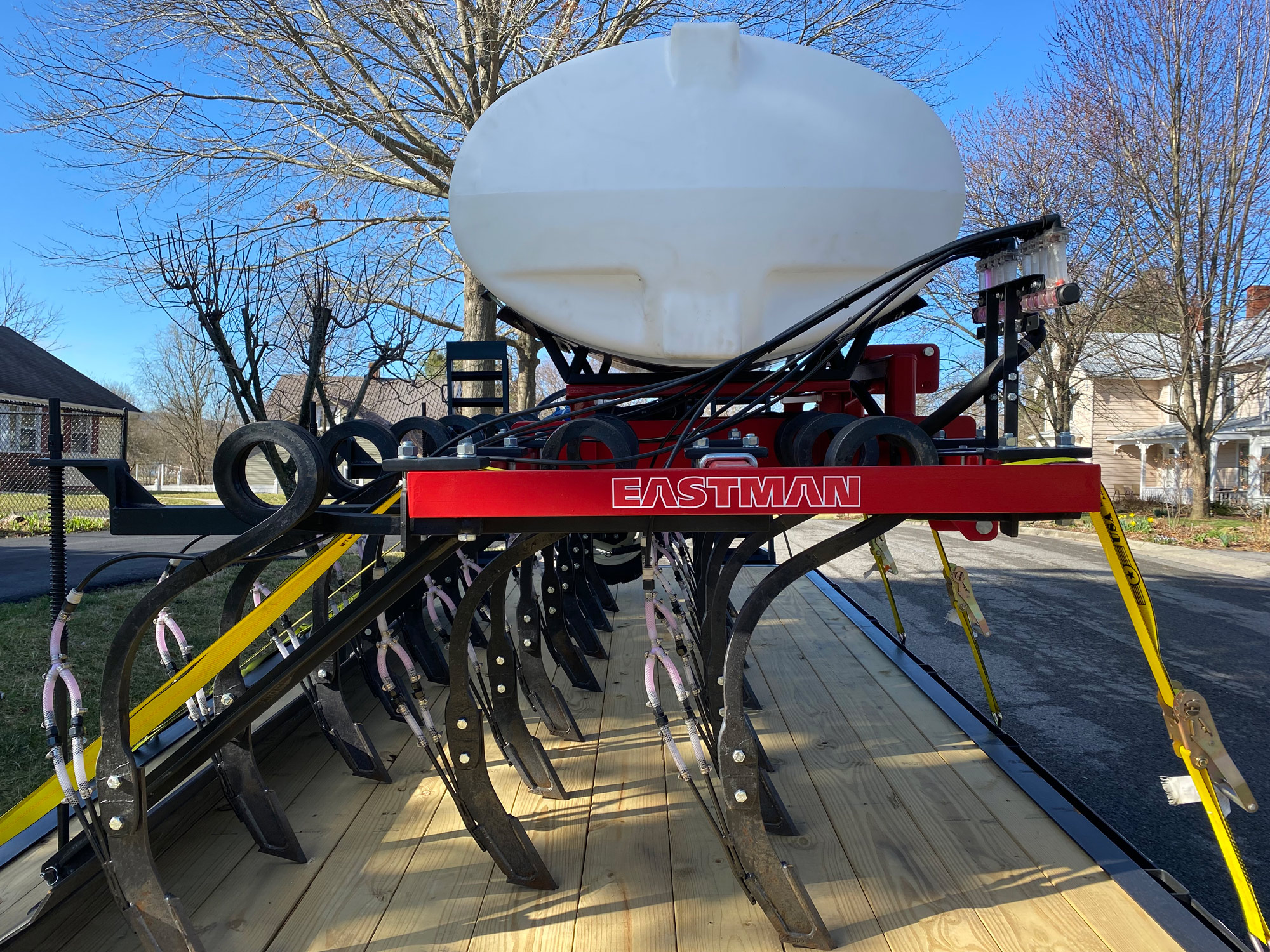
Goosefoot or spade injection is a suitable method for heavy soils and large, open fields. As the tractor-mounted machine advances, the goosefoot-shaped blade lifts the soil. At the same time, the disinfectant piping exit underneath allows a well-distributed spread of Nemasol on the soil at the chosen depth under the entire surface of the blade if equipped with a spraying nozzle.
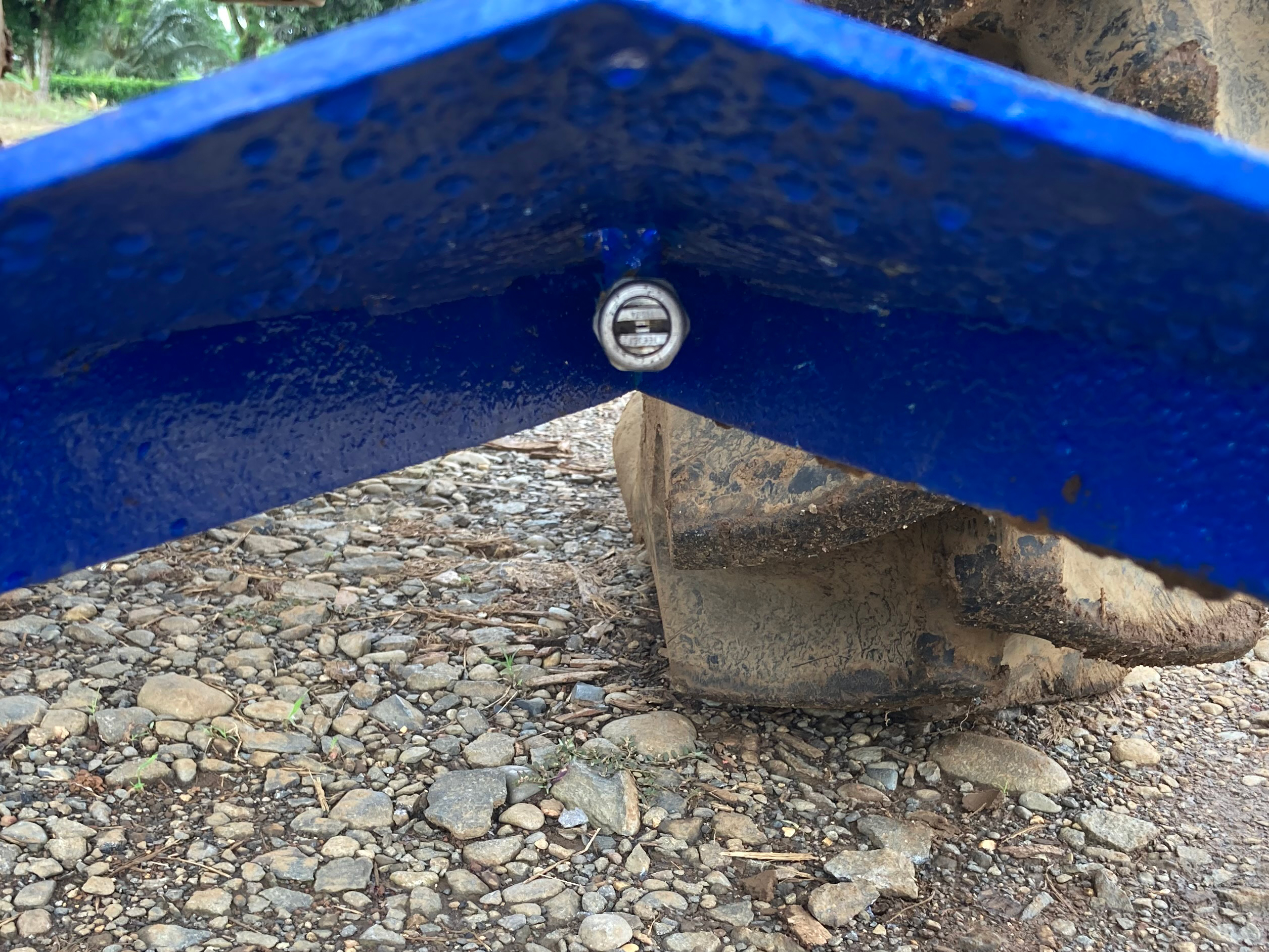
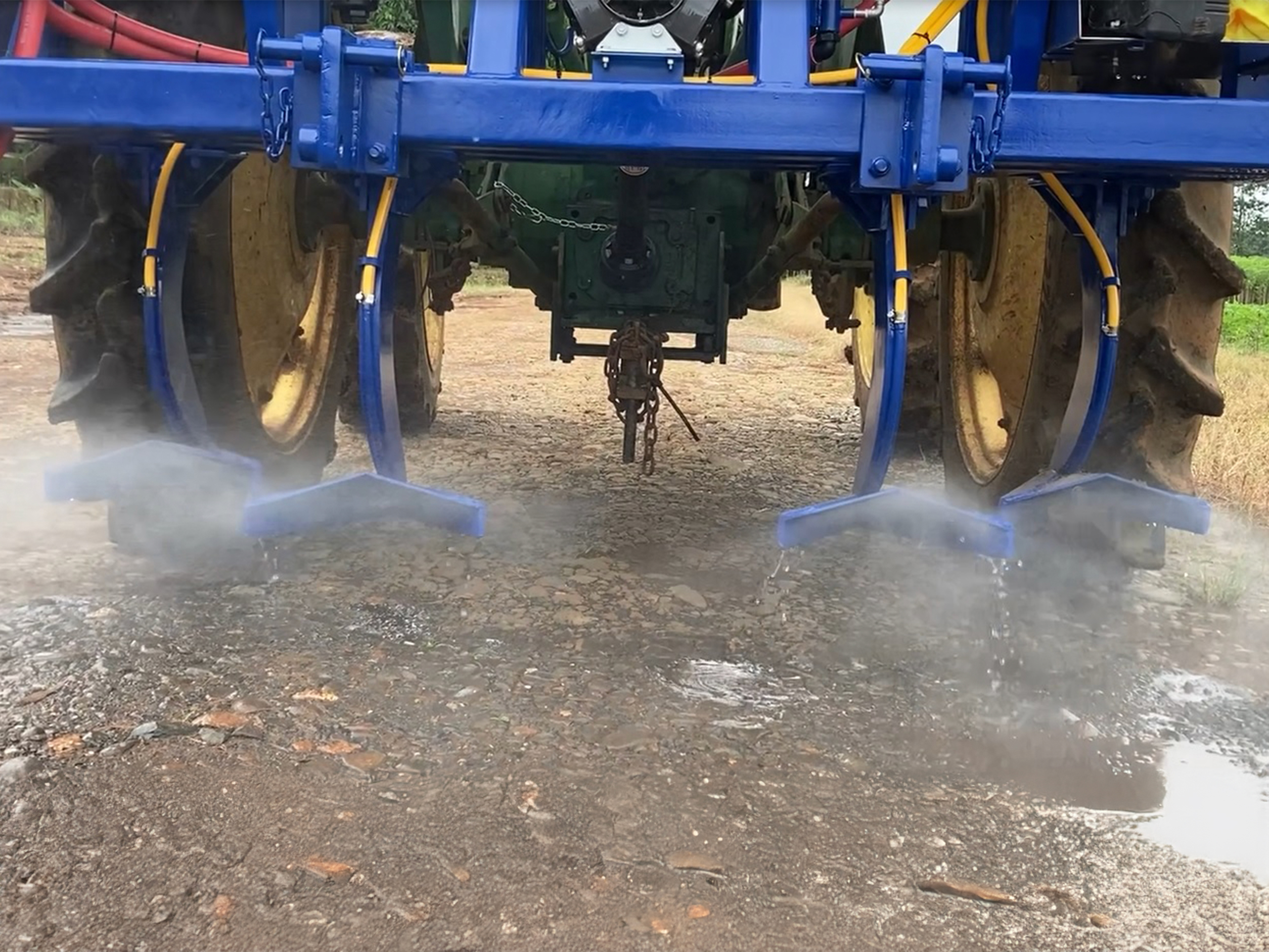

The following drawing illustrates how the machine works.
Following are examples of successful, commercially produced machines.
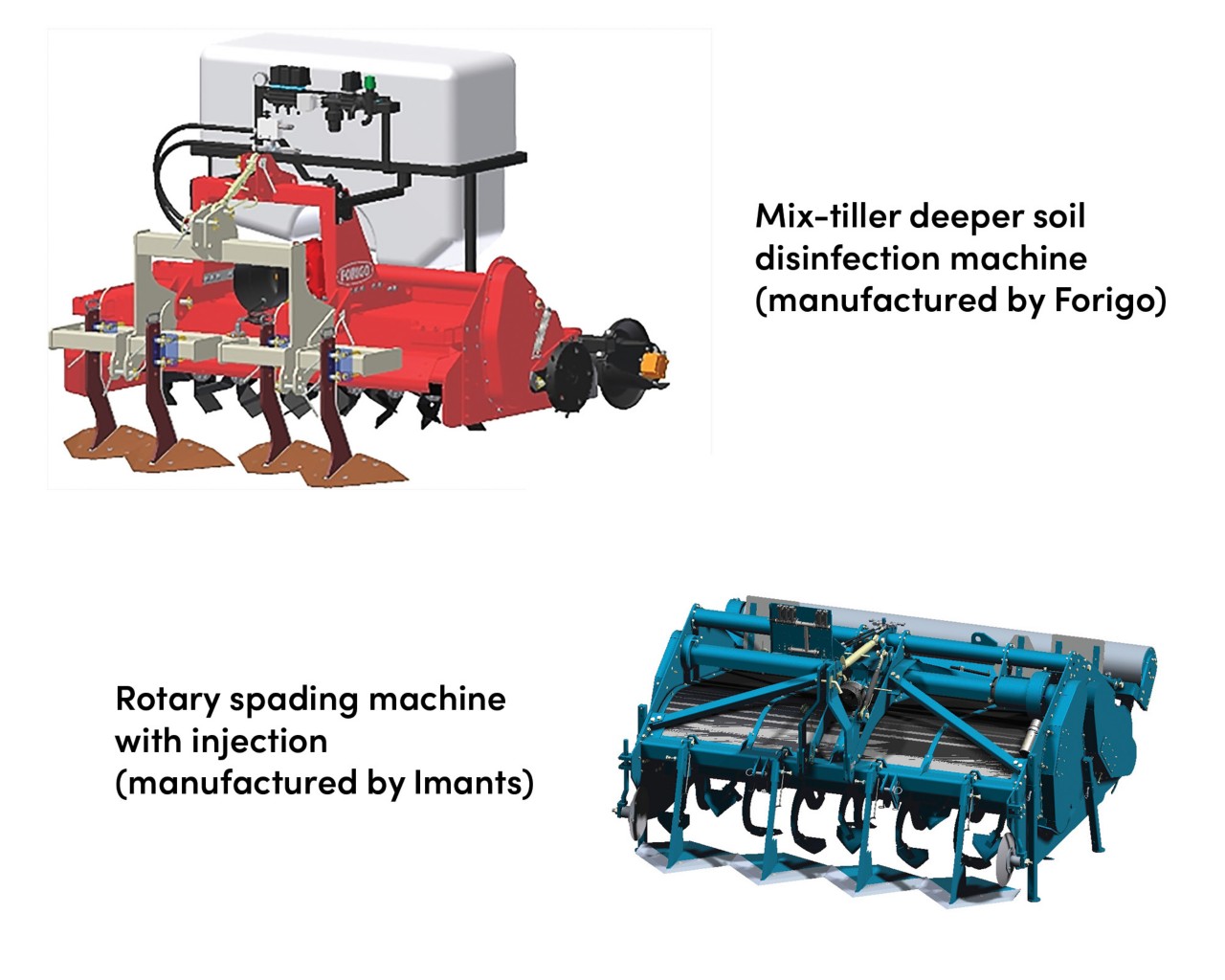
Soil injection versus soil incorporation
Soil injection without mixing of the soil leads to a peak concentration of MITC at the injection depth and decreasing concentrations above and underneath as illustrated here. The distribution depends highly on the soil type.
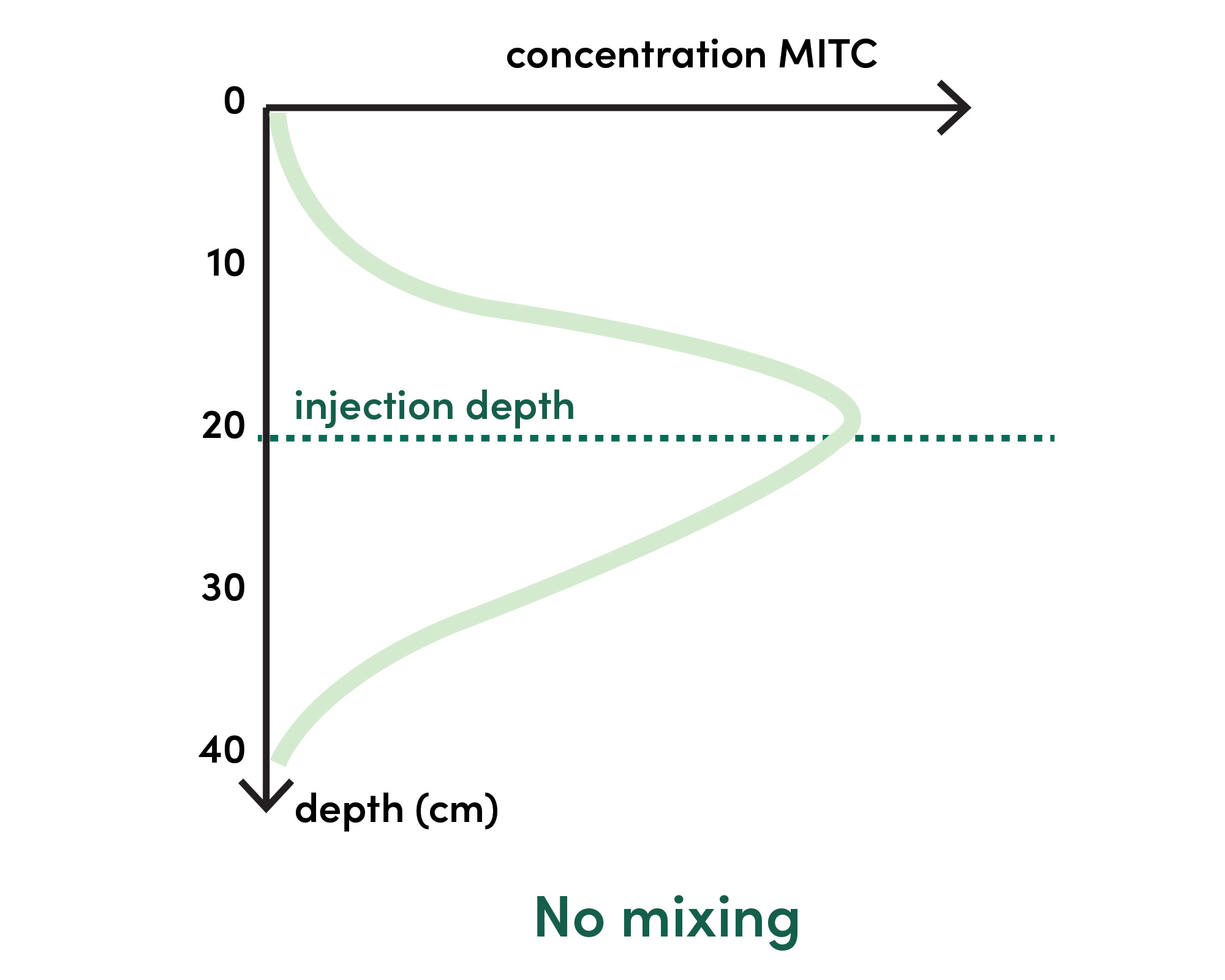
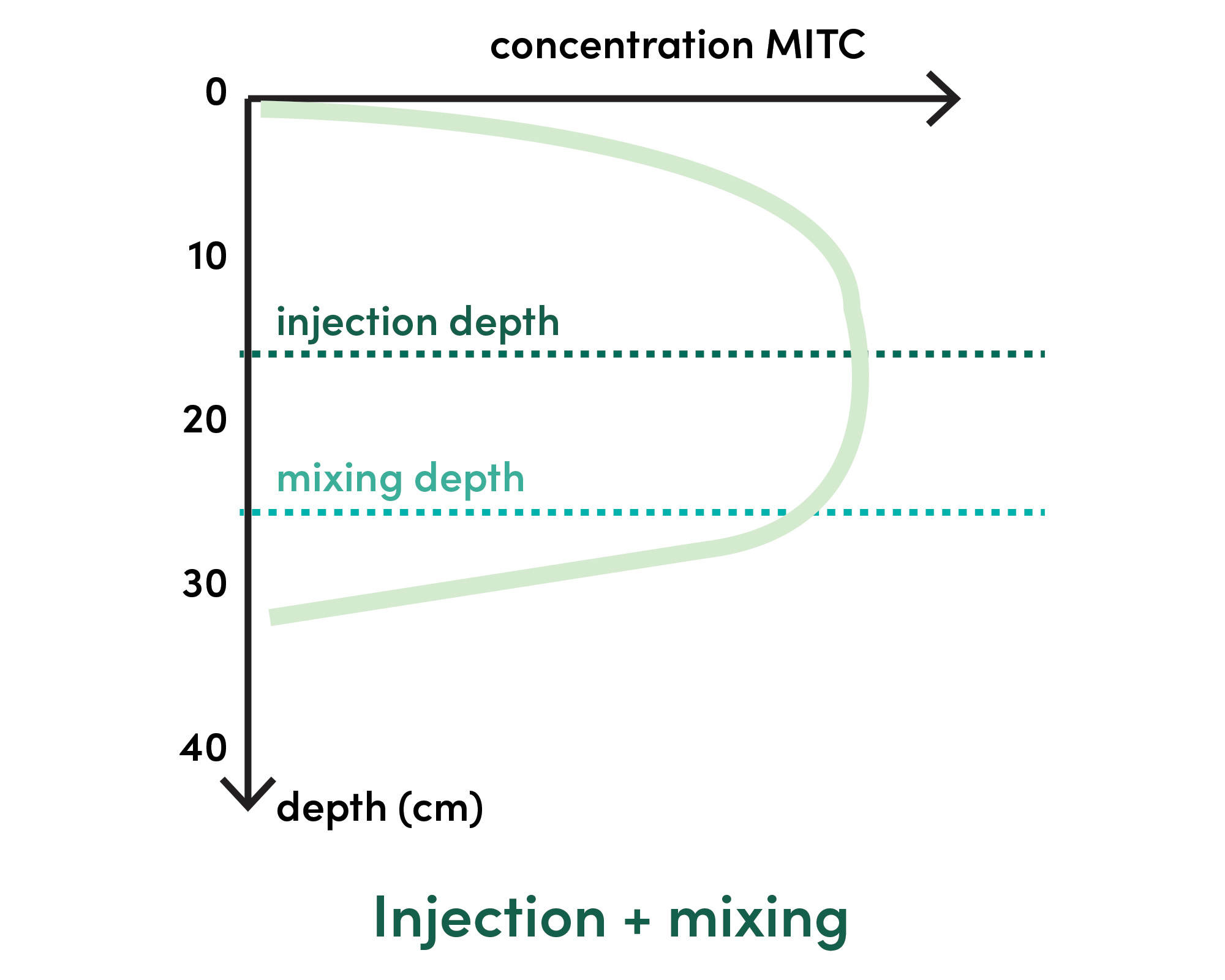
Depending on the crop type, specific application machines are developed (as in the following example that is developed for pineapples). In this case, the injection machine is combined with a bedding machine to prepare the soil for planting.
Certain statements may not be applicable in all geographical regions. Product labeling and associated claims differ based on government requirements. Use plant protection products safely. Always read the label and product information before use.






